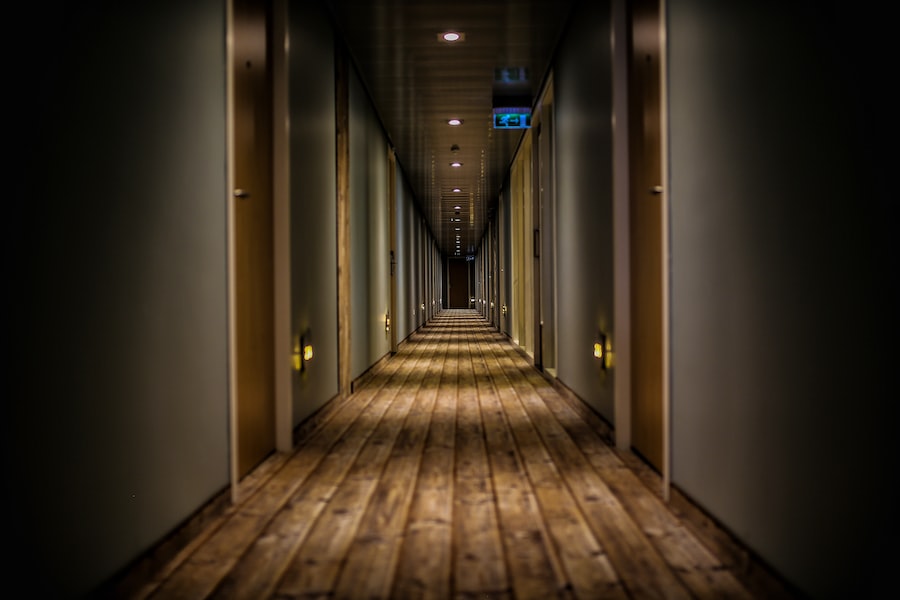Efficient hotel maintenance is crucial for the smooth operation and success of any hotel. Maintenance plays a vital role in the hospitality industry as it ensures that the property is well-maintained, safe, and comfortable for guests. It encompasses a wide range of tasks, including cleaning, repairs, and preventive maintenance.
The impact of maintenance on guest satisfaction and loyalty cannot be overstated. A well-maintained hotel creates a positive impression on guests and enhances their overall experience. Cleanliness, in particular, is a key factor in guest perception and can greatly influence their satisfaction levels. Guests expect clean and well-maintained facilities during their stay, and any shortcomings in this area can lead to dissatisfaction and negative reviews.
Key Takeaways
- Efficient hotel maintenance is crucial for guest satisfaction and cost-effectiveness.
- Maintaining clean floors in high-traffic areas is a major challenge for hotels.
- Robotics can be incorporated into hotel maintenance to save time and money.
- Implementing robotics in hotel maintenance leads to improved cleanliness and guest satisfaction.
- The future of hotel maintenance holds potential for further advancements in robotics.
The Challenge: Maintaining Clean Floors in a High-Traffic Environment
Maintaining cleanliness in a hotel, especially in high-traffic areas such as lobbies, hallways, and restaurants, can be a significant challenge. With guests constantly coming and going, spills, dirt, and debris are inevitable. Traditional cleaning methods may not be sufficient to keep up with the demands of a busy hotel.
Clean floors are essential for guest perception as they are one of the first things guests notice when they enter a hotel. Dirty or stained floors can give the impression of poor hygiene and lack of attention to detail. On the other hand, clean and well-maintained floors create a positive impression and contribute to a pleasant guest experience.
The Solution: Incorporating Robotics into Hotel Maintenance
To address the challenges of maintaining clean floors in a high-traffic environment, many hotels are turning to robotics as a solution. Robotics technology has advanced significantly in recent years, making it more accessible and practical for use in various industries, including hospitality.
Using commercial floor cleaning robots in hotel maintenance offers several benefits. Firstly, robots can perform repetitive tasks with precision and consistency, ensuring thorough cleaning of floors. They can navigate through different surfaces and obstacles, reaching areas that may be difficult for human cleaners to access. This results in more efficient and effective cleaning practices.
There are different types of commercial floor cleaning robots used in hotel maintenance, each designed for specific tasks. Autonomous floor scrubbers, for example, are equipped with sensors and cameras to navigate and clean floors independently. They can detect obstacles and adjust their cleaning patterns accordingly. Robotic vacuum cleaners are also commonly used to maintain cleanliness in hotel rooms and common areas.
The Benefits: Cost-Effective and Time-Saving Maintenance Practices
| Benefits | Cost-Effective Maintenance Practices | Time-Saving Maintenance Practices |
|---|---|---|
| Reduced Downtime | Regular maintenance reduces the likelihood of unexpected breakdowns and repairs, saving money on emergency repairs. | Efficient maintenance practices reduce the time required for maintenance tasks, allowing for more time to focus on other important tasks. |
| Extended Equipment Life | Regular maintenance helps to identify and address potential issues before they become major problems, extending the life of equipment. | Efficient maintenance practices reduce wear and tear on equipment, extending its lifespan. |
| Improved Safety | Regular maintenance ensures that equipment is functioning properly and safely, reducing the risk of accidents and injuries. | Efficient maintenance practices reduce the time required for maintenance tasks, allowing for more time to focus on safety measures. |
| Cost Savings | Regular maintenance reduces the need for costly repairs and replacements, saving money in the long run. | Efficient maintenance practices reduce the time required for maintenance tasks, saving money on labour costs. |
Incorporating robotics floor cleaning into hotel maintenance brings several benefits, including cost savings and time efficiency. While the initial investment in robotics technology may be significant, the long-term cost savings outweigh the upfront costs or alternatively a robot fleet with monthly payments
Using commercial cleaning robots for maintenance tasks reduces the need for manual labour, resulting in reduced labour costs. Robots can work autonomously, requiring minimal supervision from staff. This allows hotel employees to focus on other important tasks, such as guest service and hospitality.
Additionally, robots can complete cleaning tasks in a fraction of the time it would take a human cleaner. They work efficiently and consistently, ensuring that cleaning is done thoroughly and quickly. This not only saves time but also allows for more frequent cleaning cycles, leading to improved cleanliness throughout the hotel.
The Implementation: Integrating Robotics into the Hotel’s Floor Maintenance Plan
Integrating robotics into a hotel’s maintenance plan requires careful planning and implementation. The following steps are involved in incorporating robotics into maintenance:
1. Assessing needs: Identify the specific maintenance tasks that can be automated using robotics. Determine which areas of the hotel would benefit most from robotic assistance.
2. Researching options: Explore different robotics technologies available in the market and select the ones that best fit the hotel’s needs and budget.
3. Training staff: Provide training to staff members who will be working with robots. This includes familiarizing them with the technology, teaching them how to operate and maintain the robots, and ensuring they understand the safety protocols.
4. Implementing gradually: Introduce robotics into maintenance operations gradually, starting with one or two robots and expanding as needed. This allows for a smoother transition and gives staff time to adjust to working with robots.
The Results: Improved Cleanliness and Guest Satisfaction

The use of robotics in hotel maintenance has shown significant improvements in cleanliness and guest satisfaction. With robots performing cleaning tasks, floors are cleaned more thoroughly and consistently, resulting in a higher level of cleanliness throughout the hotel.
Cleanliness is a critical factor in guest satisfaction, and when guests see that a hotel is committed to maintaining a clean environment, it enhances their overall experience. Clean floors contribute to a positive first impression and create a sense of comfort and well-being for guests.
Guest satisfaction is closely linked to loyalty and repeat business. When guests have a positive experience during their stay, they are more likely to return in the future and recommend the hotel to others. By using robotics to improve cleanliness, hotels can enhance guest satisfaction and build long-term loyalty.
The Impact: Increased Efficiency and Reduced Labor Costs
The use of robotics in hotel maintenance has a significant impact on labour costs and maintenance efficiency. By automating repetitive tasks, hotels can reduce the need for manual labour, resulting in reduced labour costs.
Robots can work autonomously, requiring minimal supervision from staff. This allows hotel employees to focus on other important tasks, such as guest service and hospitality. With robots taking care of cleaning tasks, staff members can allocate their time more efficiently, leading to increased productivity.
Moreover, robots can complete cleaning tasks in less time compared to human cleaners. They work efficiently and consistently, ensuring that cleaning is done thoroughly and quickly. This not only saves time but also allows for more frequent cleaning cycles, leading to improved cleanliness throughout the hotel.
The Future: The Potential for Further Advancements in Hotel Maintenance
The future of hotel maintenance holds great potential for further advancements in robotics technology and maintenance practices. As technology continues to evolve, robots will become more sophisticated and capable of performing a wider range of tasks.
Advancements in robotics technology may include the development of robots that can perform more complex cleaning tasks, such as window cleaning or carpet cleaning. These robots may be equipped with advanced sensors and artificial intelligence capabilities to navigate and adapt to different environments.
Furthermore, maintenance practices may evolve to incorporate predictive maintenance, where robots can detect and address maintenance issues before they become major problems. This proactive approach can help hotels save costs and minimize disruptions to guests.
The Lessons Learned: Best Practices for Incorporating Robotics into Hotel Maintenance
Integrating robotics into hotel maintenance requires careful planning and consideration. Here are some best practices to keep in mind:
1. Start small: Begin by implementing robotics in one or two areas of the hotel and gradually expand as needed. This allows for a smoother transition and gives staff time to adjust to working with robots.
2. Provide training: Ensure that staff members who will be working with robots receive proper training on how to operate and maintain the robots. This includes familiarizing them with the technology, teaching them safety protocols, and addressing any concerns or questions they may have.
3. Regular maintenance: Establish a regular maintenance schedule for the robots to ensure they are functioning optimally. This includes cleaning and inspecting the robots, replacing any worn-out parts, and updating software as needed.
4. Monitor performance: Regularly monitor the performance of the robots and gather feedback from staff members. This allows for continuous improvement and ensures that the robots are meeting the hotel’s maintenance needs effectively.
The Success of [Hotel Name] and the Future of Hotel Maintenance
In conclusion, efficient hotel maintenance is crucial for guest satisfaction and loyalty. Maintaining clean floors in a high-traffic environment can be challenging, but incorporating robotics into hotel maintenance offers a solution. The use of robotics brings several benefits, including cost savings and time efficiency.
By integrating robotics into their maintenance plan, hotels can improve cleanliness, enhance guest satisfaction, and increase efficiency while reducing labour costs. The future of hotel maintenance holds great potential for further advancements in robotics technology and maintenance practices.
[Hotel Name] has successfully implemented robotics in its maintenance operations, resulting in improved cleanliness and guest satisfaction. Other hotels can follow suit by carefully planning and implementing robotics into their maintenance plan, training staff, and monitoring performance. With the right approach, hotels can achieve greater efficiency and cost savings while providing a superior guest experience.

